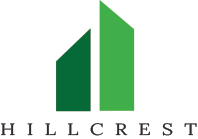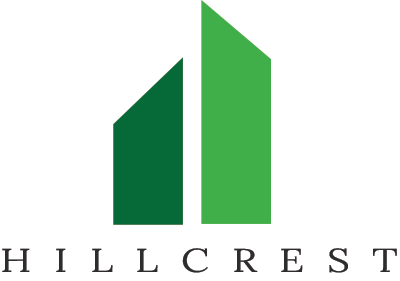The responsibilities of HOA board members extend far beyond simply giving out orders. Board members have specific obligations that they must meet. Accepting a role on the HOA board means understanding these obligations and what goes into fulfilling them.
What are the Responsibilities of HOA Board Members?
The HOA board is a group of volunteer homeowners responsible for managing the association. Board members typically run for a place on the board, but some are appointed. These board members carry several responsibilities – all of which are aimed at improving the community.
Here are the many duties of HOA board members.
1. Common Area Maintenance
One of the most well-known HOA board of directors responsibilities is common area maintenance. Board members must schedule maintenance and repairs, ensuring that the amenities and common elements are properly maintained. The HOA board is responsible for hiring the vendors carrying out these services.
2. Financial Management
 When it comes to HOA board member responsibilities, financial management is perhaps the most challenging.
When it comes to HOA board member responsibilities, financial management is perhaps the most challenging.
Many board members aren’t well-versed in accounting or bookkeeping, which is why many communities turn to professionals or HOA managers.
Homeowners associations deal with finances, making financial management crucial. Board members are responsible for setting and managing the annual budget, collecting dues and special assessments, preparing and distributing financial reports, and ensuring a low delinquency rate.
If an HOA has a reserve fund, the board is also responsible for maintaining and managing this fund.
3. Vendor Management
Homeowners associations can’t run on their own. Most of the time, these associations require the help of third-party professionals for various services. Vendors can include but are not limited to maintenance companies, management firms, accountants, reserve analysts, snow removal companies, insurance providers, and the like.
One of the HOA board’s responsibilities is to hire, coordinate, and manage vendors. The hiring process should involve securing multiple bids, interviewing candidates, and negotiating contracts. The board is also responsible for ensuring that all hired vendors are performing their jobs well.
4. Rule Enforcement
Another one of the responsibilities of HOA board members is enforcing the rules of the community. These include the CC&Rs, bylaws, and the operating rules.
If a homeowner violates a rule, the HOA board must proceed with the violation process. Typically, this means sending a violation notice and giving the homeowner an opportunity to appear at a hearing before the board. After that, the HOA board can then levy fines as a penalty (765 ILCS 160/1-30).
5. Committee Oversight
 HOA board member duties can quickly become overwhelming, especially in larger communities. Committees can help with this by sharing some of the responsibilities of HOA board members.
HOA board member duties can quickly become overwhelming, especially in larger communities. Committees can help with this by sharing some of the responsibilities of HOA board members.
For example, a Violations Committee can take over inspecting for violations, sending notices, and enforcing the rules.
Even with committees, the HOA board can’t simply abandon their duties. The board is still responsible for overseeing all of these committees and making sure they are doing their jobs well. More often than not, committees don’t have the power to make final decisions. That kind of authority only rests with the board.
6. Compliance With Laws and Governing Documents
The responsibilities of HOA board members also include compliance with the law and the governing documents. There are several federal, state, and local laws that govern the operation and rules of homeowners associations. In Illinois, there is the Common Interest Community Association Act and the Condominium Property Act.
Every homeowners association also has a set of governing documents. These are comprised of the the CC&Rs, the Bylaws, the Articles of Incorporation, the Community Plat, and the Rules and Regulations. The HOA board must enforce and adhere to these documents.
7. Dispute Resolution
One of the more overlooked HOA board members responsibilities is dispute resolution. As with any community, HOAs are no strangers to neighbor disputes. When conflict happens, the HOA board can step in to de-escalate the situation and attempt to reach a resolution that works for all parties involved.
8. Communication
The HOA board must keep an open line of communication among themselves, with the HOA manager, vendors, and homeowners. Board members must keep everyone in the loop, especially when it comes to policy changes, community events, and important updates.
Homeowners Association Board Member Responsibilities
The HOA board is further divided into officers and non-officers. While positions can vary from one HOA to another, officer roles typically include the president, the vice president, the secretary, and the treasurer.
For HOAs in Illinois, 765 ILCS 160/1-25 dictates that there must be an election of at least a president, secretary, and treasurer.
Here are the specific homeowners association board of directors responsibilities.
President
The role of the board president is to oversee the association’s activities, preside over meetings, lead the board, and make final decisions in the absence of a unanimous vote.
Homeowners who wish to take on this role must understand how the HOA works and have a full grasp of the governing documents. They must also possess leadership, communication, delegation, and management skills.
Vice President
The duty of the vice president is to fill in for the president when the latter is indisposed. For this reason, the VP should understand all of the responsibilities of the president and possess the same qualities.
When they’re not filling in for the president, the VP carries out the work delegated to them by the president. Normally, this means leading and overseeing committees.
Secretary
 The secretary is responsible for all documentation within the association. They must ensure that all documents comply with legal requirements.
The secretary is responsible for all documentation within the association. They must ensure that all documents comply with legal requirements.
The secretary also takes minutes of the meetings, distributes important documents to members, and ensures all records are updated. Due to the nature of the role, the secretary must be organized and detail-oriented.
Treasurer
Finally, the treasurer is responsible for managing the association’s finances. They typically oversee the collection of dues and the disbursement of funds. Together with the president, they create the annual budget, monitor expenditures, and prepare financial reports.
It is also the treasurer’s job to check for any financial irregularities. Because of this, the treasurer needs to have an understanding of accounting and financial management.
Turn to Professional Management
The responsibilities of HOA board members can be vast and overwhelming. Self-management is always an option and can be easy for small communities. More often than not, associations turn to professional management companies to assist with the many duties and tasks placed upon the board.
Hillcrest offers HOA management services to communities in Chicago. Call us today at 630-627-3303 or contact us online to request a proposal!
RELATED ARTICLES:
- Getting To Know HOA Board Of Directors
- How To Increase Community Engagement In Your HOA
- How To Amend HOA Bylaws And Covenants In Chicago





